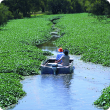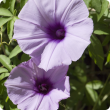PaDIS
The Pest and Disease Information Service (PaDIS) provides advisory and identification services on animal and plant pests, weeds and diseases that impact Western Australia's agriculture and food industries. This service plays an important frontline role for the detection and reporting of unfamiliar and potentially damaging pests, weeds and diseases of agricultural and quarantine concern.
Filter by search
Filter by topic
- Pests, weeds & diseases (62) Apply Pests, weeds & diseases filter
- Pests (30) Apply Pests filter
- Biosecurity & quarantine (29) Apply Biosecurity & quarantine filter
- Pest insects (25) Apply Pest insects filter
- Horticulture (24) Apply Horticulture filter
- Crops (24) Apply Crops filter
- Diseases (22) Apply Diseases filter
- Biosecurity (21) Apply Biosecurity filter
- Fruit (19) Apply Fruit filter
- Quarantine (14) Apply Quarantine filter
- Plant biosecurity (14) Apply Plant biosecurity filter
- Fungi (13) Apply Fungi filter
- Importing to Western Australia (12) Apply Importing to Western Australia filter
- Citrus (11) Apply Citrus filter
- Quality assurance schemes (10) Apply Quality assurance schemes filter
- Exporting from Western Australia (10) Apply Exporting from Western Australia filter
- Intrastate movement (10) Apply Intrastate movement filter
- Weeds (7) Apply Weeds filter
- Importing plant and plant products (7) Apply Importing plant and plant products filter
- Nursery & cutflowers (7) Apply Nursery & cutflowers filter
- Importing animals (6) Apply Importing animals filter
- Importing miscellaneous (5) Apply Importing miscellaneous filter
- Control methods (5) Apply Control methods filter
- Grapes & wine (4) Apply Grapes & wine filter
- Exporting animals (3) Apply Exporting animals filter
- Vegetables (3) Apply Vegetables filter
- Stone fruit (3) Apply Stone fruit filter
- Exporting plant and plant products (3) Apply Exporting plant and plant products filter
- Exporting miscellaneous (3) Apply Exporting miscellaneous filter
- Pome fruit (2) Apply Pome fruit filter
- Table grapes (2) Apply Table grapes filter
- Mites & spiders (2) Apply Mites & spiders filter
- Viruses & virus-like (2) Apply Viruses & virus-like filter
- Minor fruits (2) Apply Minor fruits filter
- Crop diseases (2) Apply Crop diseases filter
- Invasive species (2) Apply Invasive species filter
- New horticulture crops (1) Apply New horticulture crops filter
- Olives (1) Apply Olives filter
- Wine grapes (1) Apply Wine grapes filter
- Nematodes (1) Apply Nematodes filter
- Onions (1) Apply Onions filter
- Livestock biosecurity (1) Apply Livestock biosecurity filter
- Bees (1) Apply Bees filter
- Declared plants (1) Apply Declared plants filter
- Livestock & animals (1) Apply Livestock & animals filter
- Livestock species (1) Apply Livestock species filter
- Mechanical, physical and cultural (1) Apply Mechanical, physical and cultural filter







